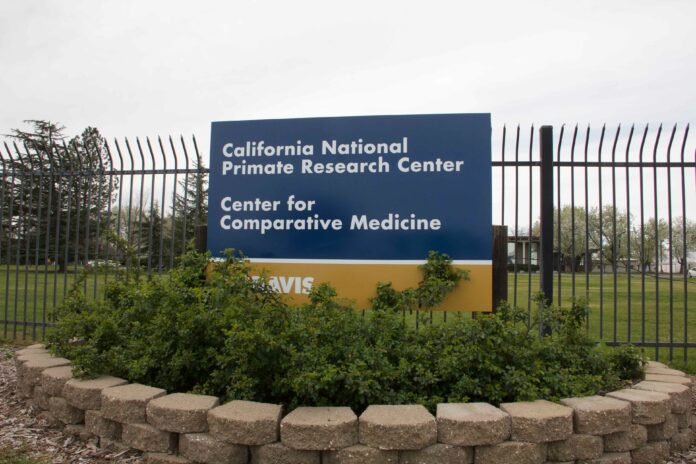UC Davis Primate Center faces scrutiny this summer
The California National Primate Research Center (CNPRC) at UC Davis came under fire again this summer after it was reported that seven baby monkeys had died under its care in April of 2018. The center reported the deaths when they happened, but the incidents were subjected to a more extensive investigation by local media this summer.
Animal rights activist groups subsequently called for the university to be fined — Stop Animal Exploitation Now! (SAEN) went as far as to say the university was engaging in a “cover up.” SAEN, whose website is sponsored by a religious foundation, has a history of filing federal complaints about universities around the country for conducting animal research and aims to stop the practice.
According to UC Davis spokesperson Andy Fell, SAEN finds out about incidents by doing a public information search.
“They ‘announce’ them as if they were new,” Fell said. “These are things we’ve already reported to the USDA or the NIH and taken steps to make sure it doesn’t happen again.”
The US Department of Agriculture and National Institute of Health establish the regulations and guidelines that must be followed by the CNPRC.
The center at UC Davis is one of seven National Primate Research Centers around the country. Some of these centers, like those located at the University of Washington and the University of Wisconsin have also received attention from the same animal rights group. The University of Wisconsin declined to comment on the “activities” of the animal rights group, saying instead that the university “considers animal research an indispensable tool for understanding complex living organisms.” The University of Washington did not respond to requests for comment at the time of this article’s publication.
One of the claims animal rights groups often make is that animal experimentation is unnecessary. Research with monkeys is only conducted when “questions cannot be answered in other ways,” according to the NPRC website. Scientists use monkeys to study complicated issues such as chronic lung disease, Alzheimer’s disease or reproductive problems because of the genetic closeness of monkeys to humans.
Fell echoed this idea, explaining that a principle of animal research is to only use it if there is no alternative.
“If you don’t have to use an animal for the experiment, don’t use an animal, if you can use a cell culture, use a cell culture, if you can use a mouse instead of a monkey, use a mouse, if you can use fewer animals use fewer animals,” Fell said.
Animal research is conducted on rats and mice 95% of the time, according to the Foundation for Biomedical Research. For an experiment to be conducted at the CNPRC, it must be approved by the center’s Research Advisory Committee and the UC Davis Institutional Animal Care and Use Committee, which includes “public non-affiliated members.”
When asked about why the center’s scientists are hard to reach, Fell explained that “there have been occasions in the past where people have been targeted by harassing emails or worse.”
Written by: Andrea Esquetini— campus@theaggie.org





